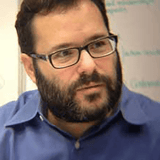Summary
So all of a sudden, everyone at your company is interested in going into the field, meeting with clients, and “building empathy.” What could possibly go wrong? At ADP we created a program of ethnographic (lite) research designed to harness this excitement for exploratory research, enable anyone in the org to participate in conducting research, and help stakeholders think outside of their own product or screens. Secretly, our program was carefully designed to also teach our partners what it means to do Research: listen thoughtfully, analyze holistically, and truly understand client feedback before jumping to solutions.
Key Insights
-
•
Democratizing research involves both involving non-researchers in the research and upskilling them to collect better data.
-
•
Having a large appetite for research is a positive problem that requires structured management to avoid chaos.
-
•
Using exposure hours for non-researchers to regularly interact with research helps build empathy and understanding.
-
•
The 'Come See For Yourself' program breaks research into three phases: planning, data collection, and analysis, to teach fundamentals.
-
•
Planning research carefully with scripted interview questions aligned to business goals improves reliability and avoids on-the-fly errors.
-
•
Empathy training for non-researchers before interviews teaches active listening, managing power dynamics, and avoiding leading questions.
-
•
Non-researchers as observers use note-taking sheets to focus on specific research questions, reinforcing data collection rather than casual conversation.
-
•
Synthesis sessions use unstructured, inclusive discussion to surface similarities, differences, and underlying themes across all interviews.
-
•
Analysis involves translating factual data into user needs and problem statements, often framed as 'how might we' questions.
-
•
Collaborative solution workshops prioritize problems and evaluate multiple solution ideas, enabling user-centered decision-making beyond individual opinions.
Notable Quotes
"Doing research is not always the most natural transition for people who don’t really care about research."
"If you want to be involved in developing solutions at the end, you better have gotten yourself significant client exposure."
"Break research down into planning, data collection, and analysis phases — that’s how non-researchers understand it better."
"Just being smarter and really having been exposed to the research is not going to lead to a specific feature, but a better overall product."
"Listening is different than conversation, even though it looks and feels similar."
"We view ourselves as Sherpas on the adventure — we do the work, they get the experience."
"The note-taking sheet helps reinforce that just because it seems like a conversation, we are still collecting data."
"Synthesis sessions focus on facts rather than interpretation to find underlying themes and consider outliers."
"Problem statements help us discuss and compare solutions in a user-centered way, aligning goals versus the hip of the highest paid person's opinion."
"We can help develop a friendly and informed army of people who do research part time, not just part way."
Or choose a question:
















More Videos

"Your breath is the most powerful thing. It moves on its own, but it’s the one thing you can control."
Zariah CameronReDesigning Wellbeing for Equitable Care in the Workplace
September 23, 2024

"You can have more than one priority at a time because they might have very different value and urgency profiles."
John Cutler Harry MaxPrioritization for designers and product managers (1st of 3 seminars) (Videoconference)
June 13, 2024

"We created our design system called Unity to help scale great app experiences and connect developers and designers."
Nick CochranGrowing in Enterprise Design through Making Connections
June 3, 2019

"Documentation helps explain the rationale and revisit decisions in the future, preventing repeated mistakes."
Deanna SmithLeading Change with Confidence: Strategies for Optimizing Your Process
September 23, 2024

"Breathing and resisting the urge to rush is essential because rushing will not help."
Magdalena ZadaraZero Hour: How to Get Far Quickly When Starting Your Digital Service Unit Late
November 16, 2022

"We didn’t exploit the knowledge gap. Everyone was willing to say I don’t know. Can you help me?"
Nova Wehman-BrownWe've Never Done This Before
June 4, 2019

"Machines may identify that higher ice cream sales is associated with higher band ice, but the former is not causing the latter."
Liwei DaiThe Heart and Brain of the AI Research
March 31, 2020

"We made changes in the last three weeks that would normally have taken three years. Could we expect a COVID dividend?"
Gordon Ross12 Months of COVID-19 Design and Digital Response with the British Columbia Government
December 8, 2021

"Sharing my story with the engineering director opened something; vulnerability builds trust."
Tutti TaygerlyMake Space to Lead
June 12, 2021
















